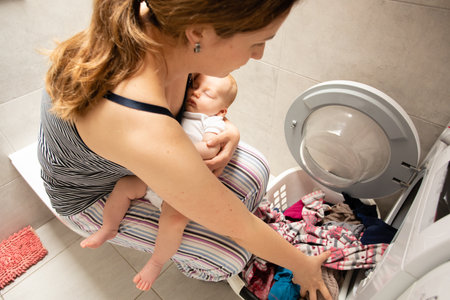Understanding Nighttime Potty Training
Nighttime potty training is a whole new adventure compared to daytime training. While your toddler might be rocking their big-kid undies all day, staying dry at night is a different quest altogether. That’s because nighttime dryness depends not just on learning, but also on your child’s physical development—specifically, how their bladder and brain communicate during deep sleep. Some kids may master daytime potty skills quickly, but need more time for their bodies to catch up at night. That’s totally normal! So, don’t stress if your little one isn’t waking up dry right away. Patience is your superpower here. Celebrate small victories and remember: every child’s journey is unique, and with encouragement (and maybe some extra sheets), you’ll both level up together!
Signs Your Toddler Is Ready
Before you dive into nighttime potty training, it’s important to recognize if your child is developmentally ready for this new challenge. Every toddler grows at their own pace, and picking up on their readiness cues can make all the difference in creating a positive experience for both of you. Here are some key signs that your little one may be prepared to start staying dry overnight.
Understanding Readiness: What to Look For
Kids don’t just wake up one day magically ready for nighttime dryness. It often takes time after daytime potty success before they can consistently stay dry through the night. Watch for these signals:
| Sign | What It Looks Like | Why It Matters |
|---|---|---|
| Dry Diapers in the Morning | Your toddler wakes up with a dry or only slightly damp diaper several mornings in a row. | This shows their bladder can hold urine overnight—a key developmental milestone. |
| Awareness of Wetness | Your child tells you when they’re wet, or gets upset about sleeping in a wet diaper. | This awareness means they’re beginning to connect body signals with actions. |
| Success With Daytime Potty Training | They’re consistently using the potty during the day and rarely have accidents. | This foundation builds confidence and muscle control needed at night. |
| Ability to Stay Dry for Naps | Your little one stays dry during naps, even long ones. | This suggests growing bladder capacity and control while asleep. |
| Showing Independence | Your toddler wants to do things “by myself” and shows interest in big-kid routines. | Their motivation can help them embrace new challenges like nighttime training. |
How Many Signs Should You Wait For?
No two kids are alike, but spotting two or more of these signs is a good indication your child is getting ready. Remember—rushing before they’re ready can lead to frustration for both of you. Take it as an adventure together: keep things positive, celebrate small wins, and trust your child’s timeline!

3. Setting Up for Success
Creating the right environment and routine is key when starting nighttime potty training. The goal? Help your toddler feel comfortable, confident, and empowered to stay dry all night. Here’s how you can set up for success:
Prep the Bedroom
Keep things simple and stress-free! Place a potty chair close to your child’s bed so it’s easy for them to access if they need to go in the middle of the night. Use a nightlight or soft lamp to light the way—this helps little ones find their path without feeling scared or fully waking themselves up. Consider using waterproof mattress protectors and extra sheets, so late-night accidents are quick and easy to handle.
Establish a Nightly Routine
Consistency builds confidence. Create a calming bedtime routine that always includes one last trip to the bathroom or potty before lights out. Remind your child gently each night that their potty is nearby if they need it. Keep pajamas simple (think: easy-up pants) so bathroom trips don’t turn into wrestling matches with stubborn buttons or zippers.
Reduce Pre-Bedtime Drinks
About an hour before bedtime, limit how much your child drinks. Offer water earlier in the evening instead, so your toddler doesn’t go to bed with a full bladder.
Encourage Independence
Let your child practice pulling down pajamas and using the potty on their own during daytime hours. Celebrate small wins together—they’ll be more likely to try at night if they feel proud of what they can do!
Setting up for success is all about making nighttime potty training less stressful for both you and your toddler. With these practical steps, you’re building healthy habits that will help keep those sheets dry—and mornings happy!
4. Positive Reinforcement Strategies
Encouraging your toddler during nighttime potty training can make a world of difference in their motivation and confidence. Kids thrive on positive feedback, and turning this challenge into a fun adventure can help both you and your child feel successful. Let’s explore how to use encouragement, rewards, and small celebrations to boost your toddler’s progress while keeping the process playful and stress-free.
Using Encouragement Effectively
Praise every effort, not just the successes! When your toddler tries to use the potty before bed or wakes up dry, offer enthusiastic words like “Great job!” or “I’m so proud of you for trying!” Even if there are accidents, focus on what they did right—such as telling you they needed to go or helping with cleanup. This approach nurtures a growth mindset, showing your child that effort leads to progress.
Reward Systems That Motivate
Simple reward systems can turn potty training into a game. Consider using sticker charts or token jars to track dry nights or attempts to use the potty. When your child reaches certain milestones, celebrate together with a small treat or special privilege. Here’s a quick guide to possible rewards:
| Milestone | Reward Idea |
|---|---|
| Stays dry for one night | Pick a bedtime story |
| Tries to use the potty before bed | Earn a sticker on the chart |
| Keeps pajamas dry for three nights | Choose breakfast for the family |
| A full week of progress | Mini celebration (dance party, extra playtime) |
Small Celebrations Go a Long Way
You don’t need big prizes—sometimes, a high five, happy dance, or letting your toddler call Grandma with good news can be just as motivating. Involving your child in choosing their rewards keeps them excited and gives them ownership over their achievements.
Tips for Success:
- Be consistent with praise and rewards.
- Avoid punishment for accidents—keep things positive!
- Share successes with family members for added encouragement.
- Adjust rewards based on what excites your child most.
By making nighttime potty training an uplifting experience full of encouragement and playful rewards, you’ll empower your toddler to build confidence and stay motivated throughout this important milestone.
5. Troubleshooting Common Challenges
Accidents Happen: Stay Calm and Positive
No matter how well you prepare, nighttime accidents are part of the potty training journey. If your toddler wakes up wet, take a deep breath and remember—it’s normal! Instead of showing frustration, reassure your child that everyone makes mistakes when learning something new. Offer a quick change of pajamas and sheets together as a team, turning it into a mini mission rather than a punishment.
Dealing with Setbacks: Progress Isn’t Always Linear
Sometimes, your toddler might seem to be making progress, then suddenly have more frequent accidents. This is totally typical and doesn’t mean your efforts aren’t working. Try to focus on small wins—maybe they woke up dry once this week or told you right after an accident. Celebrate these moments with high-fives or stickers, keeping motivation high and shame low.
Handling Regression: When Old Habits Return
Life changes like moving, starting preschool, or a new sibling can cause temporary setbacks in nighttime dryness. If regression happens, don’t panic! Continue your bedtime routine, maintain consistency, and offer extra comfort if needed. Remind your child that it’s okay to have tough nights and that you’re proud of them for trying their best.
Growth Mindset Tips for Parents
- Use phrases like “You’re getting better every night!” or “I love how hard you’re trying.”
- Avoid negative labels or punishments; instead, encourage problem-solving (“What could we do differently tonight?”).
- Model resilience by sharing your own learning stories—kids love hearing about times when grown-ups had to keep practicing too!
Remember, successful nighttime potty training is about progress, not perfection. By approaching challenges with patience and a growth mindset, you’ll empower your toddler—and yourself—to keep moving forward together.
6. When to Seek Additional Support
Every child’s nighttime potty training journey is unique, and while most toddlers master staying dry at night with time and patience, there are moments when reaching out for extra support can make a big difference. So how do you know if it’s time to talk to your pediatrician or seek additional help?
Know the Typical Timeline
It’s important to remember that many kids don’t stay dry at night until age 5 or even older, and occasional accidents are totally normal during the learning process. However, if your child is over 7 years old and still wetting the bed regularly, it might be worth discussing with your pediatrician.
Watch for Signs That Need Attention
If your toddler suddenly starts wetting the bed after months of being dry, or if they’re experiencing pain while urinating, unusual thirst, blood in their urine, or other concerning symptoms, don’t hesitate to reach out for medical advice. Sometimes these signs can point to underlying issues like urinary tract infections or other health conditions.
Support Beyond Medical Help
Sometimes nighttime wetting can impact a child’s confidence or cause stress within the family. If you notice your child feeling embarrassed, anxious, or frustrated, connecting with a counselor or support group can provide reassurance and helpful strategies.
Remember: every superhero needs a team! Seeking support isn’t a setback—it’s part of helping your toddler grow strong and confident on their potty training adventure. Keep celebrating progress, and don’t be afraid to ask for help when you need it.
